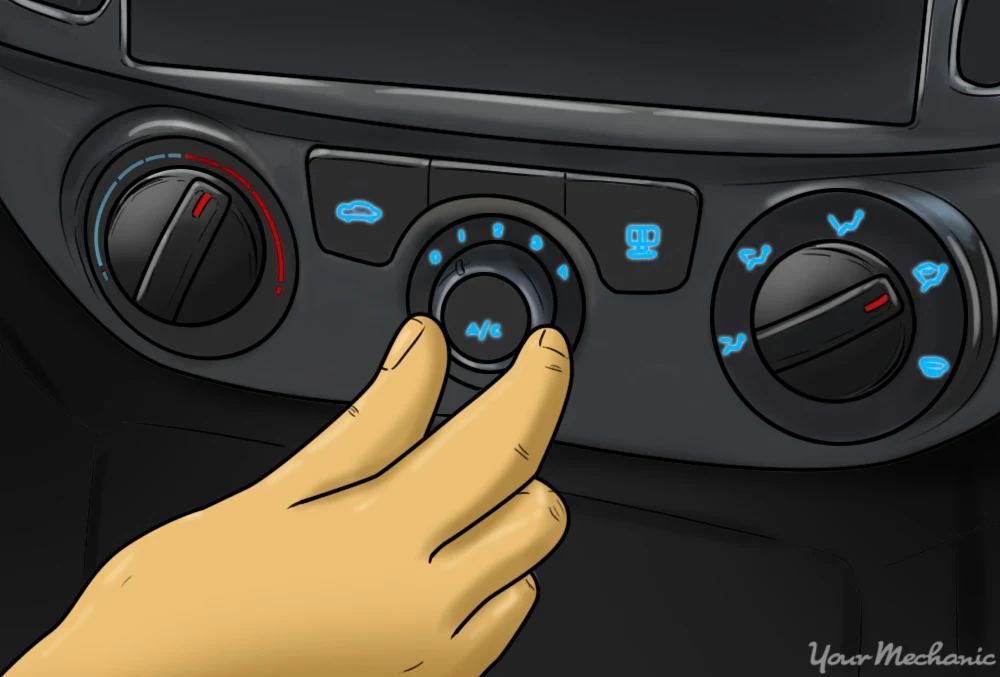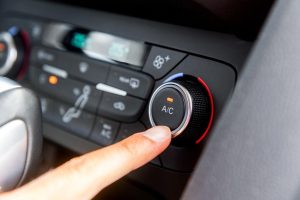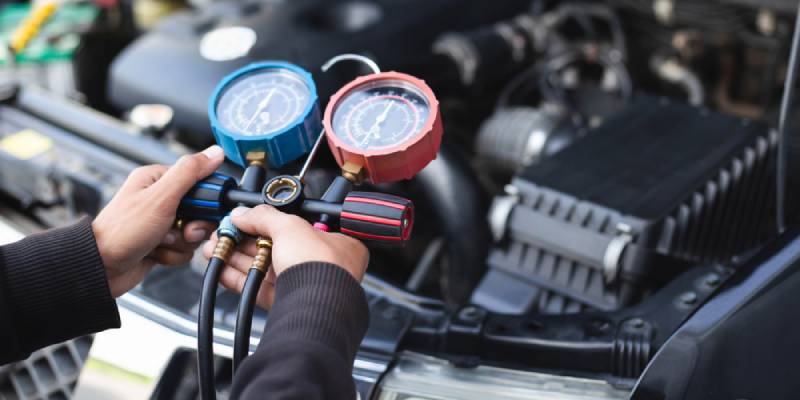Top 5 Reasons Why Your Car AC Isn’t Cooling and How to Fix It

Experiencing problems with your car’s air conditioning can be frustrating, especially during hot weather. If your car AC isn’t cooling effectively, several issues might be at play. This guide covers the top five reasons your car’s AC might not be cooling and provides practical solutions to help you get it back in working order.some common reasons car ac not cooling
- Clogged Filters. …
- Faulty Controls. …
- Low or Leaking Refrigerant. …
- Damaged Condenser. …
- Faulty Sensors. …
- Pressure Switch Issues. …
- Faulty Blend Door Actuator. …
- Damaged Compressor Clutch.

#1 Low Refrigerant Levels
What is Refrigerant?
Refrigerant is a fluid used in your car’s AC system to absorb heat from inside the car and release it outside. If the refrigerant level is low, your AC won’t cool the air effectively.
Causes of Low Refrigerant
- Leaks: Leaks in the AC system can cause refrigerant to escape. Common leak points include hoses, fittings, and the condenser.
- Faulty Components: Components such as the evaporator coil or expansion valve can fail, leading to refrigerant loss.
How to Fix It
- Check for Leaks: Have a professional inspect your AC system for leaks. They use special equipment to detect and repair leaks.
- Recharge the Refrigerant: After fixing any leaks, the refrigerant needs to be recharged. This should be done by a certified technician to ensure proper handling.
When to Seek Professional Help
If you suspect low refrigerant levels or a leak, consult a mechanic. They have the tools and expertise to handle these issues safely.

#2 Faulty Compressor
What is the AC Compressor?
The AC compressor is a vital component that compresses the refrigerant and circulates it through the system. A faulty compressor can prevent your AC from cooling properly.
Signs of a Faulty Compressor
- Unusual Noises: Grinding or squealing noises may indicate a problem.
- AC Not Engaging: If the compressor doesn’t turn on, the AC system won’t cool.
How to Fix It
- Check the Compressor: Look for visible damage or leaks and ensure electrical connections are secure.
- Replace the Compressor: If the compressor is faulty, it may need to be replaced. This is a complex repair and should be done by a professional.
When to Seek Professional Help
Replacing or repairing a compressor requires specialized knowledge and tools. Consult a certified technician if you suspect a problem.
#3 Clogged or Dirty Condenser
What is the Condenser?
The condenser helps dissipate heat from the refrigerant. A clogged or dirty condenser can reduce cooling efficiency.
Causes of a Clogged Condenser
- Debris: Leaves and dirt can obstruct airflow.
- Damage: Physical damage to the condenser can affect performance.
How to Fix It
- Clean the Condenser: Use a soft brush or compressed air to remove debris. Be careful not to damage the fins.
- Check for Damage: Inspect for physical damage and replace the condenser if necessary.
When to Seek Professional Help
If cleaning the condenser doesn’t resolve the issue or if there is damage, consult a mechanic for a thorough inspection and repair.
#4 Faulty Blower Motor
What is the Blower Motor?
The blower motor circulates air through the AC system into the cabin. A malfunctioning blower motor can prevent proper airflow.
Signs of a Faulty Blower Motor
- Weak Airflow: If the airflow is weak or inconsistent, the blower motor might be the problem.
- No Airflow: A complete lack of airflow can indicate a faulty blower motor.
How to Fix It
- Check the Blower Motor: Look for visible issues, such as damage or loose connections.
- Replace the Blower Motor: If faulty, the blower motor needs replacing. This should be done by a professional.
When to Seek Professional Help
Replacing a blower motor involves accessing the HVAC system, which can be complex. If you experience issues with airflow, it’s best to consult a technician.
#5 Electrical Issues
How Electrical Issues Affect AC Performance
Electrical issues can disrupt the operation of components like the compressor, blower motor, and control switches, affecting cooling performance.
Common Electrical Issues
- Fuses: Blown fuses can prevent the AC system from operating.
- Wiring Problems: Damaged or frayed wiring can cause failures in the AC system.
How to Fix It
- Check Fuses: Inspect the fuse box for blown fuses and replace them.
- Inspect Wiring: Check for damaged wiring and repair or replace it as needed.
When to Seek Professional Help
Electrical issues can be complex to diagnose. Consult a technician if you suspect an electrical problem with your AC system.
Conclusion
Summary
Understanding why your car’s AC might not be cooling effectively can help you address the problem. The top five reasons include low refrigerant levels, a faulty compressor, a clogged or dirty condenser, a faulty blower motor, and electrical issues. By identifying and resolving these problems, you can restore your AC system’s performance.
Final Recommendations
To maintain optimal cooling, regularly inspect and maintain your AC system. Address issues promptly and seek professional help to ensure a comfortable driving experience.
Preventive Measures
Regularly service your AC system to prevent future issues. Keeping it in good condition will help ensure it functions efficiently and provides comfort throughout the year.
ALSO READ CONTENT PLACE : Components of Starter Motor


